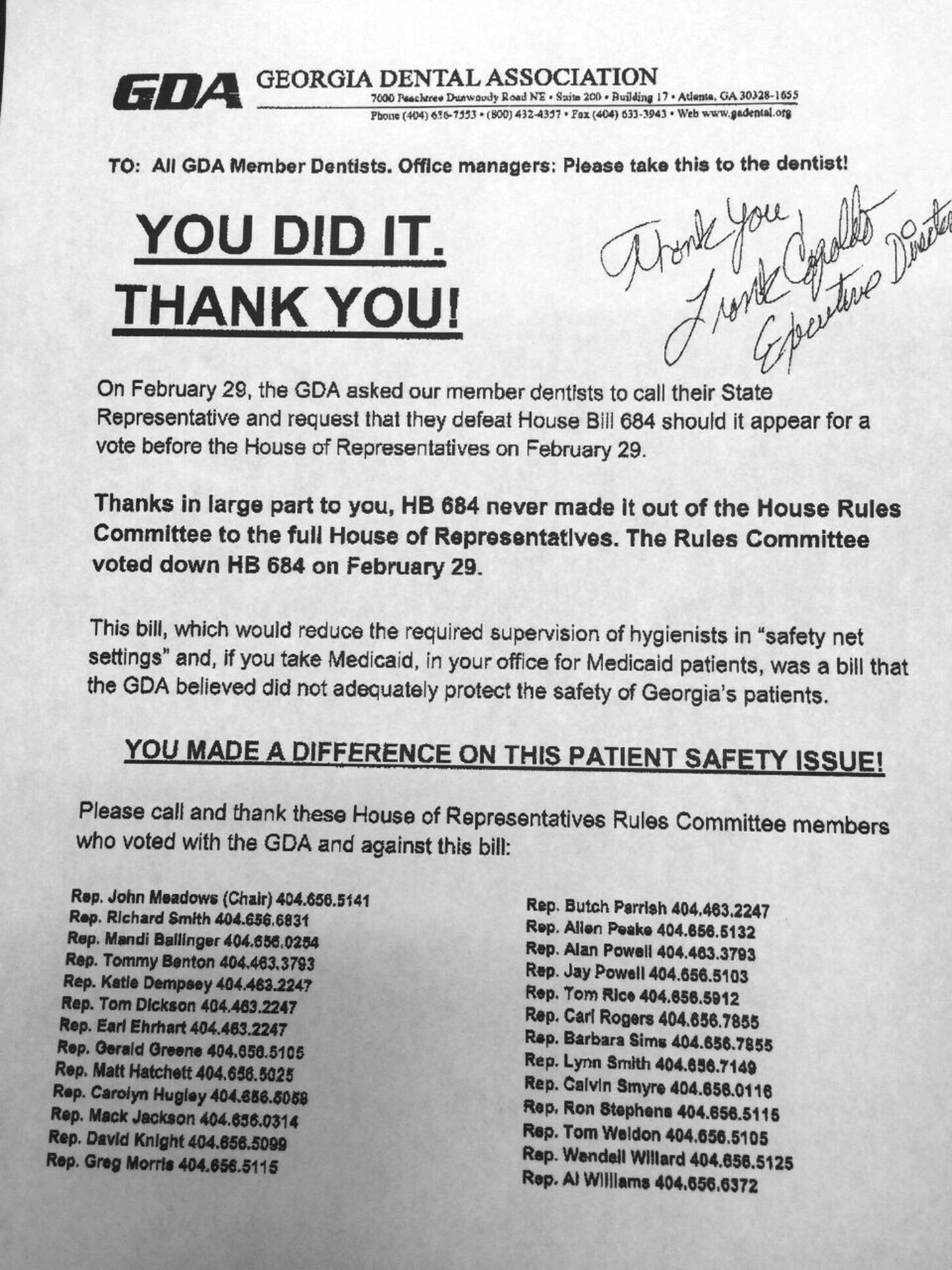
Georgia legislators get lots of input on lawmaking and good policy. The Georgia Public Policy Foundation provides legislators with a “Guide to the Issues.” After every election year, the Biennial Institute at UGA’s Carl Vinson Institute offers “an orientation to the legislative process for new lawmakers and timely policy sessions for all attendees.”
So how do laws happen? According to the Senate, “A need for a new law or change in existing law is recognized by legislator, or suggested by the Governor, public agency, a constituent, or others.” A General Assembly website summarizes: “Legislator sees need for a new law or changes in existing law and decides to introduce a bill.”
 Despite the expectations of educated, accountable and responsible lawmaking, however, Georgians often see questionable legislation become law. They also see legislation considered good – or at least, harmless – blocked, leaving many scratching their heads as to what’s happening under the Gold Dome.
Despite the expectations of educated, accountable and responsible lawmaking, however, Georgians often see questionable legislation become law. They also see legislation considered good – or at least, harmless – blocked, leaving many scratching their heads as to what’s happening under the Gold Dome.
Three recent examples:
- In 2016, legislators approved a law that required eye exams to be performed in-person by a licensed optometrist or physician. Sounds reasonable, right? Until you realize this was done expressly to end Georgia operations of an innovative, affordable and effective online vision screening service, and done at the behest of optometrists.
- In 2016, legislation was introduced to enable dental hygienists to serve Medicaid patients and low-income patients in safety-net settings without the direct (in-the-building) supervision of a dentist. In 2016, there were just 5,088 active dentists in Georgia, which has more than 10 million residents. The bill died in committee, fought by the Georgia Dental Association.
- In 2015, when lawmakers voted to allow Georgians to pay for a tour of a brewery and receive free beer afterward, the state was one of just eight that banned breweries from selling beer to customers to take home and one of eight where customers could not buy and drink a brewery’s beer on-site. Legislation being considered this year would allow annual direct sales by craft breweries of up to 3,000 barrels.
What’s the common thread? It’s explained in the title of a new book from the Institute for Justice: “Bottleneckers: Gaming the Government for Power and Private Profit.” (Encounter Books, $27.99). Written by William Mellor and Dick Carpenter, the book describes a “bottlenecker” as “anyone who uses government power to limit competition and thereby reap monopoly profits and other benefits.”
“Bottleneckers work with politicians to constrict competition, entrepreneurial innovation and opportunity. They thereby limit consumer choice; drive up consumer prices, and they support politicians who willingly overstep the constitutional limits of their powers to create, maintain and expand these anticompetitive bottlenecks,” the book explains.
In an interesting tie to Georgia’s craft brewery direct-sale difficulties, “bottleneckers” got their name from the post-Prohibition, alcohol-distribution industry, where all liquor sales must flow through distributors as middleman. (To retail your product, you require a distributor.)
The book also cites Georgia’s egregious, expensive occupational licensing law for music therapists. Requirements include a bachelor’s degree in music therapy approved by the American Music Therapy Association, which lobbied for the law. It requires 1,200 hours of clinical training, 180 hours of pre-internship experiences and 900 hours of internship experience. The upshot of these onerous requirements: fewer therapists and higher costs to Georgians.
Bottlenecking is not just big companies shutting out smaller companies. It’s professionals blocking entry to newcomers through government-imposed occupational licenses. It’s restaurants seeking restrictive zoning and licensing for food trucks, which then trickles down to a child’s lemonade stand. It’s casket sellers and taxi companies protecting their turf.
In every case, the heavy, arbitrary hand of government wields power unjustly to protect special interests while jobs, innovation, entrepreneurship and opportunity are “bottlenecked,” becoming casualties. No matter where it happens, it’s bad governance, bad economics and disrespectful of citizens. And it must be stopped.
Carpenter, director of strategic research at the Institute for Justice and a professor at the University of Colorado, Colorado Springs, is the keynote speaker for the Georgia Public Policy Foundation’s February 22 Leadership Breakfast, where he will discuss the book. Register here.